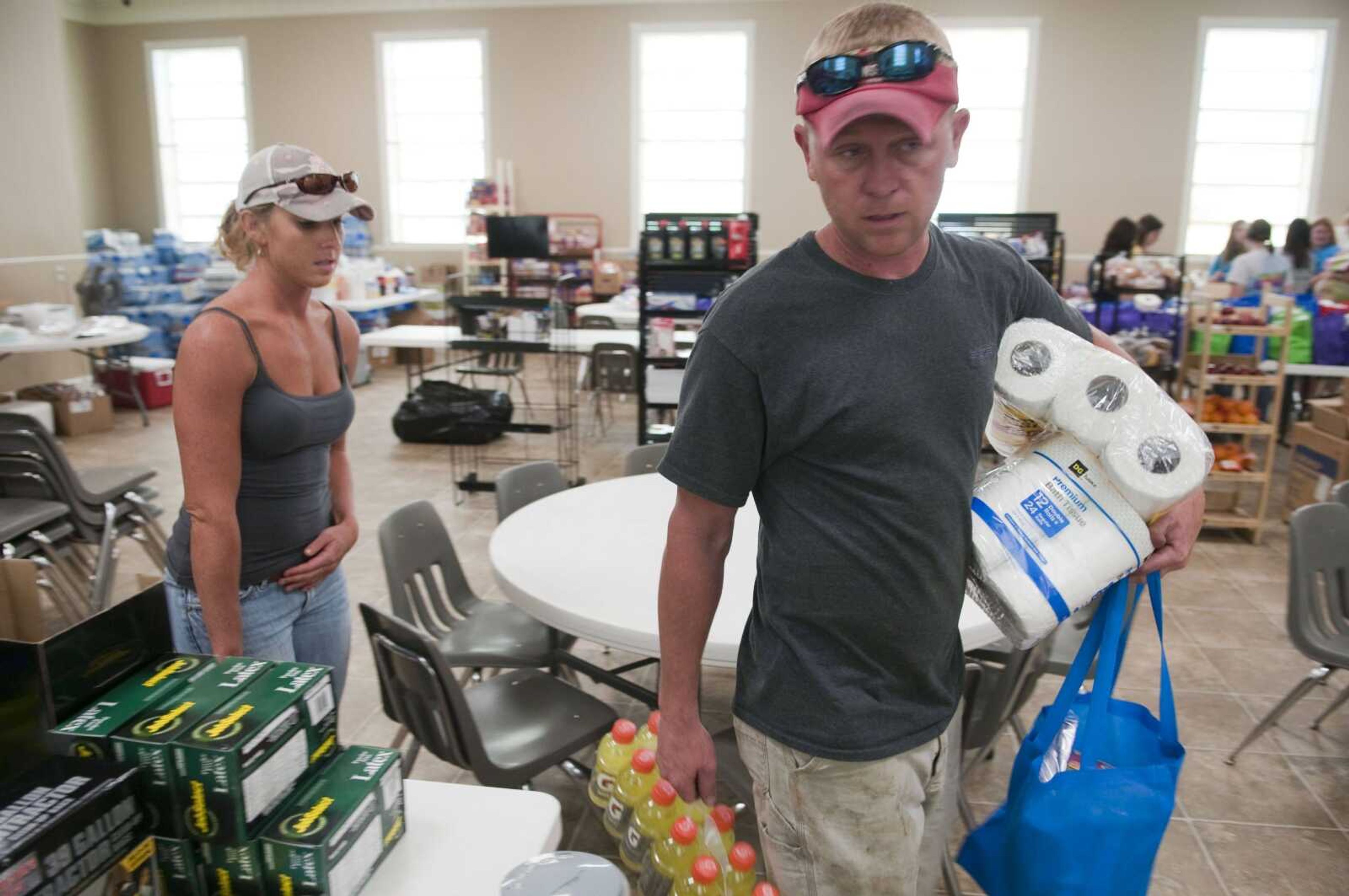Eye clinics, federal aid all part of relief for tornado-stricken Ala.
BIRMINGHAM, Ala. -- Federal disaster relief offices are helping people navigate the red tape of applying for aid and shelters are providing free haircuts and eye clinics as part of the massive relief effort that was in full swing Monday in tornado-ravaged Alabama...
BIRMINGHAM, Ala. -- Federal disaster relief offices are helping people navigate the red tape of applying for aid and shelters are providing free haircuts and eye clinics as part of the massive relief effort that was in full swing Monday in tornado-ravaged Alabama.
The Federal Emergency Management Agency has set up offices in Alabama and expects to open one soon in Mississippi. Homeland Security Secretary Janet Napolitano toured parts of both states a day earlier and pledged support.
"This is not going to be a quick comeback or an immediate [recovery] but it will be, in my view, a complete one," she said in shattered Smithville, Miss., where little was left standing.
Last week's storms flattened homes and killed 342 across seven states. Preliminary estimates show there were 312 tornadoes during last week's outbreak, including a record-setting 226 in one day, the National Oceanic and Atmospheric Administration said.
Thousands were injured, though several days later most tornado-related injuries had been tended to. On Monday, workers at a shelter in Tuscaloosa were sorting prescription drugs and for folks who have lost the medications that help keep them well.
"They're on chronic medications, and their prescriptions are gone," said Dr. Beth Western, who volunteered Monday at a shelter in Tuscaloosa. Some need medicine for conditions such as high blood pressure, cholesterol or diabetes. "They need something to get them through until they can go see their physician."
Amy Hall, 23, limped through the shelter with a broken foot, cradling her 11-month-old daughter. She was concerned about her 2-year-old son, who broke his nose and bruised a lung when their home was lifted off its foundation and tossed a block away. He spent two days in the hospital, and Hall said the family was getting excellent care at the shelter.
"I'm getting everything, probably even more than I expected," she said Monday.
In Pleasant Grove, hundreds of cases of bottled water were piled in the parking lot of a Baptist church, which had enough supplies to serve three hot meals a day to power crews, volunteers and residents.
Elsewhere, church groups and congregations have been central to the relief effort. Some churches were wiped out. Some of those left standing have become headquarters for rebuilding.
American Christian Academy, a private school in Tuscaloosa, hosted a service Sunday at a football stadium within walking distance of neighborhoods where several churches were wiped out. The school distributed food, clothes, Bibles and other supplies to residents who came to worship.
"We're hoping to feed them and give them some spiritual food," said Rob Cain, the school's athletic director and campus pastor.
Lisa Thompson, 37, her fiance and her daughter came to the service because they don't know if their church, College Hill Baptist Church, survived. They haven't made it past the police checkpoints that have sealed off the area.
"My faith is stronger now than ever," she said. "I know God will test you, but it can't be nothing but stronger."
Thompson, whose home in a different part of Tuscaloosa was destroyed by the tornado, said she has found strength in the help that her family has received from volunteers who flocked to the city after the storm. She hoped to volunteer her own time at the school.
"I had to do something," she said. "How can I not? We're still here."
Disaster-relief groups from various denominations were quick to arrive in shattered neighborhoods. For Macolee Muhammed, the first volunteer who emerged was Dustin Casey from Southern Baptist Disaster Relief.
Muhammed accepted the prayer of a relief worker who stopped by what was left of her Birmingham home. It didn't matter that she was Muslim and he was a Southern Baptist.
The 61-year-old was full of worries: Were the power lines strewn around the neighborhood live? Can the federal government help her? She told Casey she hoped she wasn't going insane.
"I haven't slept since April 27th," she said.
Casey assured her that her reaction was normal for the circumstances.
"There is hope," Casey said. "One day at a time is what you're going to have to do. This is a life-changing experience."
Muhammed said she had no job or insurance for her house: "For me to start all over, it would be like me being a hobo."
Casey suggested they pray, and Muhammed agreed. Casey thanked God for sparing her life and prayed she would be given hope and see "there is a light at the end of the tunnel."
"Amen," Muhammed said.
Connect with the Southeast Missourian Newsroom:
For corrections to this story or other insights for the editor, click here. To submit a letter to the editor, click here. To learn about the Southeast Missourian’s AI Policy, click here.










